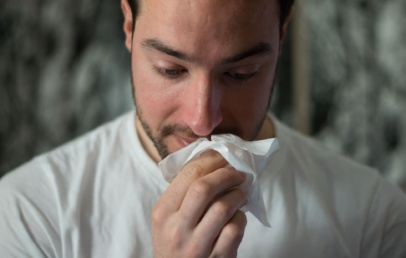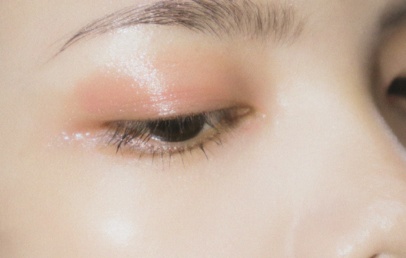
Have you ever taken a pill immediately after eating and not given it any thought? That habit might be subtly decreasing the effectiveness of your medication, but you’re not alone. When it comes to taking some medications, timing is important, according to nutritionists and medical professionals. Certain medications are impacted by the food in your stomach, which can reduce their effectiveness, result in adverse effects, or even completely stop them from being absorbed. Here are 11 typical medications that you should not take immediately after eating, along with suggestions for an alternative.
1. Tetracycline Antibiotics (e.g., Doxycycline, Tetracycline)

Food, particularly dairy products, reacts negatively to these antibiotics. Foods high in calcium, such as cheese, yogurt, and milk, can bind with tetracycline medications, making it more difficult for your body to absorb them. These drugs might not function as well if taken right after a meal, especially one that contains dairy. Experts advise avoiding dairy and calcium supplements around the time of dosing and taking tetracyclines on an empty stomach, preferably an hour before or two hours after meals.
2. Levothyroxine (Thyroid Medication)

Levothyroxine is highly sensitive to food and is frequently prescribed for underactive thyroids. Even a small meal can hinder absorption, particularly if it contains calcium, fiber, or soy. It is recommended to take this medication first thing in the morning with a full glass of water and on an empty stomach. To make sure it’s completely absorbed, try to wait at least 30 to 60 minutes before eating anything afterward.
3. Iron Supplements

Iron is a challenging material. Although it is useful for treating anemia and fatigue, it competes with many other substances in your stomach, such as high-fiber foods, calcium, and caffeine. The amount of iron your body actually absorbs can be greatly decreased by taking iron supplements immediately after a meal. To improve absorption, nutritionists frequently advise taking iron on an empty stomach with a vitamin C source, such as orange juice. A small non-dairy snack is acceptable if it makes you queasy, but stay away from large meals or foods high in calcium.
4. Bisphosphonates (e.g., Alendronate/Fosamax)

These drugs, which are frequently prescribed to treat osteoporosis, have very stringent guidelines. Apart from just plain water, even small amounts of food or drink can interfere with your body’s ability to absorb them. You should take bisphosphonates first thing in the morning, drink a full glass of water, and remain upright for at least half an hour. To get the most out of it and prevent stomach irritation, don’t eat or drink anything else during that time.
5. Certain HIV Medications (e.g., Efavirenz)

High-fat meals have an impact on certain HIV medications, increasing the amount of the drug that enters your bloodstream—sometimes excessively. Increased adverse effects, such as lightheadedness, vivid dreams, or even hallucinations, may result from this. Taking medications like Efavirenz empty-handed, ideally before bed, helps minimize these adverse effects. Because not all HIV medications react to food in the same way, always heed the specific advice of your healthcare provider.
6. Proton Pump Inhibitors (PPIs like Omeprazole, Esomeprazole)

PPIs may be familiar to you if you treat heartburn or acid reflux. These drugs are most effective when taken prior to meals that increase the production of acid. Their capacity to efficiently block acid can be diminished if taken after a meal. For optimal effects, experts advise taking PPIs 30 to 60 minutes before your first meal of the day, which is typically breakfast.
7. Certain Blood Pressure Medications (e.g., Captopril)

When taken immediately after eating, some blood pressure medications, especially ACE inhibitors like captopril, lose some of their effectiveness. Their ability to lower blood pressure may be diminished by food, which slows their absorption. Generally speaking, doctors advise taking these drugs an hour or so before meals. However, it’s best to check with your doctor or pharmacist because not all blood pressure medications are affected by food in the same way.
8. Antacids with Aluminum or Magnesium

Be mindful of what else you’re taking at the same time if you reach for an antacid to relieve heartburn after eating. If taken too closely together, these antacids may affect how well other medications are absorbed. To prevent interactions, nutritionists advise delaying taking antacids for two to four hours before taking any other medications, particularly thyroid or antibiotic medications.
9. Certain Antidepressants (e.g., Sertraline)

Certain antidepressants, such as sertraline, may be impacted by your diet, but others, like sertraline, can be taken with food to lessen nausea. Particularly high-fat meals may increase the amount of the medication that is absorbed into your bloodstream, potentially exacerbating adverse effects such as fatigue, drowsiness, or upset stomach. The majority of physicians advise taking these drugs regularly with or without food, but not immediately after a substantial or heavy meal.
10. Alli (Orlistat – Weight Loss Medication)

Alli functions by preventing the absorption of fat from meals, but the catch is that if you take it immediately after a low-fat meal, you may only experience greasy bowel movements or stomach cramps with minimal benefit. According to experts, Orlistat should only be taken with meals that include some fat—ideally, 15 grams. You should avoid taking the pill if you avoid eating a fatty meal.
11. NSAIDs (e.g., Ibuprofen, Naproxen)

To protect your stomach, it’s usually advised to take these common pain relievers with food. Nutritionists point out that taking them immediately after a substantial or high-fat meal may cause their effects to be delayed. The best course of action? To reduce stomach discomfort while maintaining the pain-relieving effects of NSAIDs, take them with a small snack. Additionally, abstain from alcohol while taking them to lower your risk of bleeding or stomach ulcers.
Your stomach affects how your medications function in addition to aiding in food digestion. Some medications are more effective when taken empty-handed, but others require food to function properly. Always read the directions, look at the label, and ask your pharmacist or doctor if you have any questions.
Establishing a medication schedule that coincides with your meals may seem like a pain, but it can significantly impact the effectiveness of your treatment. Your health could significantly improve with small timing changes.




